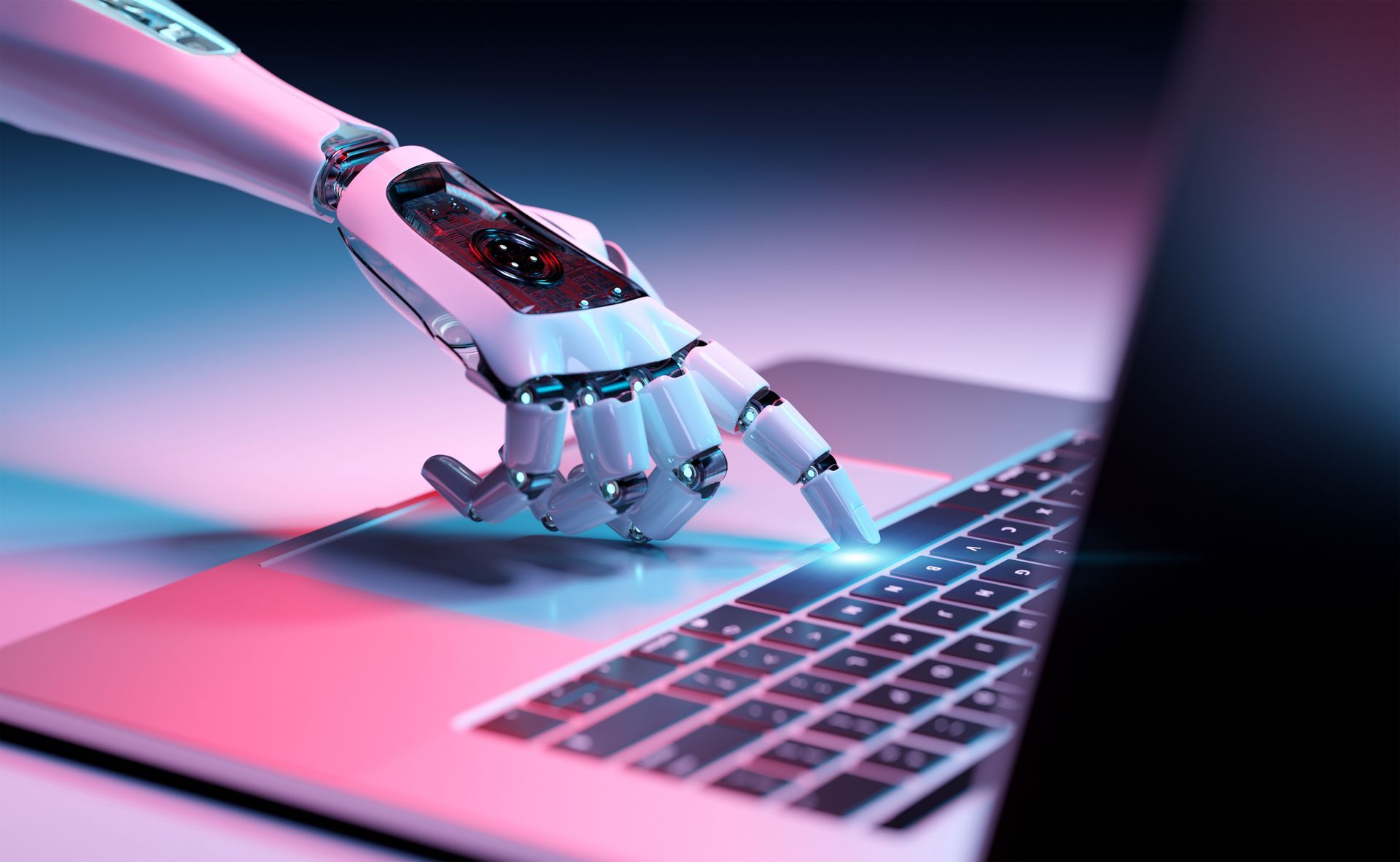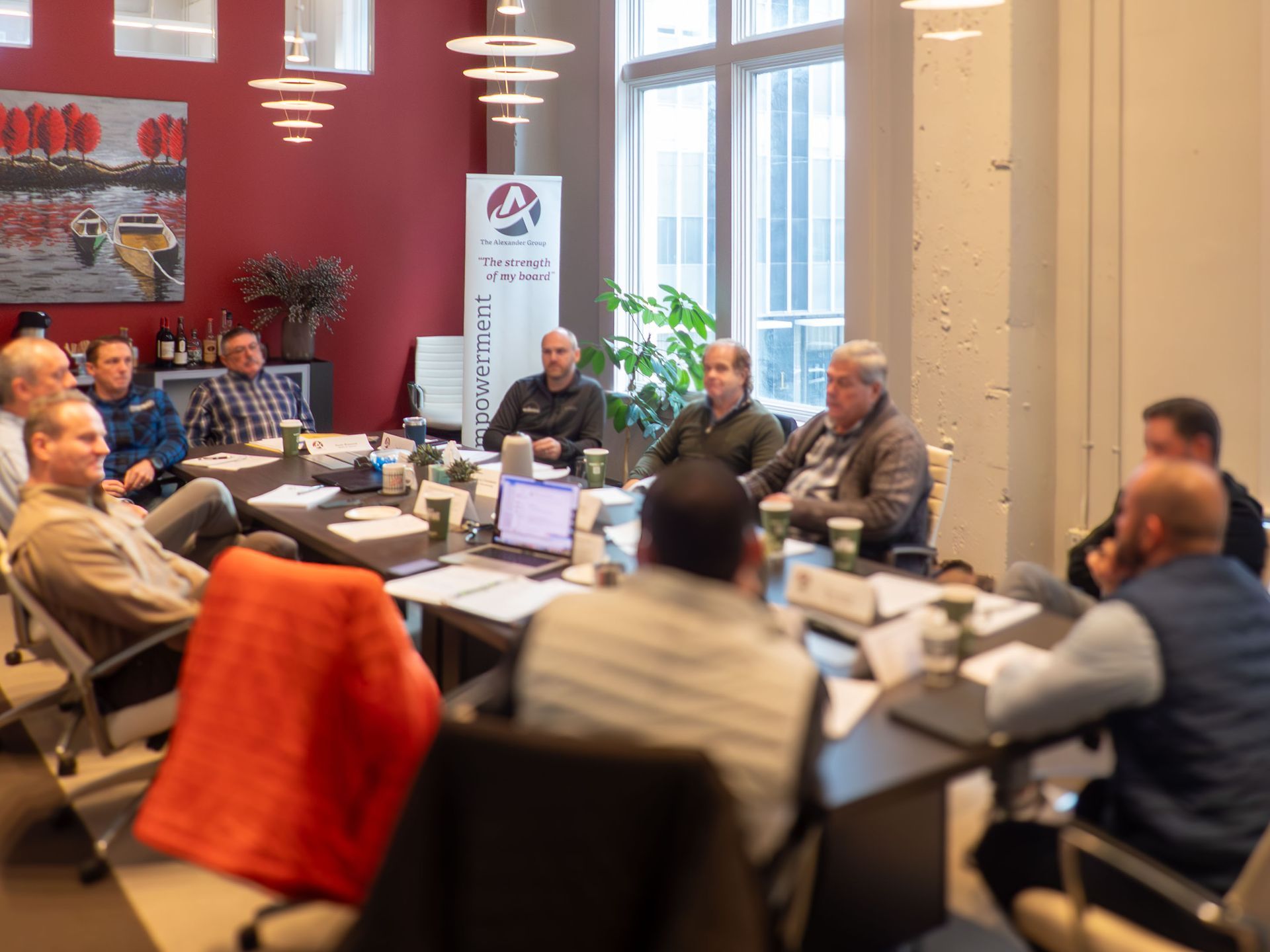New Paragraph

The Rise of AI – And What It Means For Small Business Owners
April 7, 2023
If you feel like you’re hearing everyone talking about AI (artificial intelligence) lately, you’re right – the conversation about generative AI is rapidly growing, especially with OpenAI’s launch of ChatGPT-4. Some people believe AI will drastically change the world as we know it, whereas others think it’s another passing technological advancement that will fade after the hype dies. We believe that the truth lies somewhere in the middle. AI is here to stay, and it will change parts of the business world, but there are many considerations with its integration into daily life.
A Brief History of AI
Artificial Intelligence (AI) refers to the ability of machines or computers to perform tasks that typically require human intelligence, such as learning, problem-solving, and decision-making. The history of AI dates back to the 1950s when researchers first began exploring the possibility of creating intelligent machines. In the 1980s, AI experienced a setback known as the “AI winter,” where funding and interest in the field declined. However, in the 21st century, advancements in machine learning and deep learning have led to significant progress. Today, many applications use AI, from virtual assistants and recommendation systems to self-driving cars and medical diagnosis. The field continues to evolve rapidly, with ongoing research into new areas and applications.
AI for Small Business Owners
One of the most popular applications of AI right now is ChatGPT-4, which allows users to “chat” with the system to ask questions or generate writing pieces with human-like precision. Other AI applications can create images or art pieces. It’s important to note that while AI can replicate the human quality of writing, problem-solving, art, etc., humans will still need to work with the output to clean and tailor it to the task at hand.
For instance, using AI can be a big time-saver for a small business owner overloaded with tasks. Instead of writing product descriptions for each item in an online store, they might use AI to generate them. They would still need to check over the copy to ensure it fits their brand and has no grammatical errors, but they would significantly reduce the time spent on this task.

Will Jobs Be Replaced?
Some people are worried about how the use of AI in the business world will affect staffing – will copywriters, designers, programmers, and other jobs be replaced? It’s more likely that there will be a shift in these job descriptions. Certain roles may use tools like ChatGPT daily to speed up their workflow and focus more on higher-level tasks like strategy and integration.
For years, many blue-collar workers have worried about robots or other tech replacing their factory jobs and related manual labor tasks. Generative AI has more white-collar workers worried about being replaced. Yet, as we’ve seen with blue-collar industries that have adapted to new technology, plenty of jobs still need to be filled, even if some job responsibilities have shifted. Experts predict that white-collar jobs and AI will prove similar: humans will provide ideas, with AI carrying out the task.
Privacy Protection Concerns
With the power and capacity of AI comes responsibility. Privacy and intellectual property concerns are common critiques of AI applications thus far. Several countries, including Italy, China, and Russia, have banned Chat-GPT after a data breach on the app, which involved user conversations and payment information. Others fear potential HIPAA violations and patient information leaks with its use in healthcare.
Regarding intellectual property, some artists have already called out generative AI apps that use their work as part of the training process for the application. For instance, one AI app was fed information with photos from Getty Images, producing images with a slightly distorted watermark that highly resembles their trademark. The question of who owns the work produced by AI also comes into question for users – if you create the prompt, do you own the output? Or does the application?

Ethical Uses of AI For Business
With these concerns regarding privacy and misinformation in AI outputs, small business owners must strategize how and when they will use AI in their practice. First, business owners should research which AI applications they plan to use and understand how that organization trained (programmed) it – machine learning is inherently biased based on the samples used when teaching the program to problem-solve. While OpenAI’s applications are making headlines, other companies like Microsoft and Google are racing to release their own versions.
Next, business owners should look at their current operations and determine which tasks may be suitable to use AI for and what boundaries need to place. Tasks such as copywriting product descriptions, blogs, social media posts, emails, or summarizing data and analytics are an excellent fit to integrate into AI. However, tasks that concern customer data, payment information, medical history, and more should be regulated more heavily in the name of privacy protection.
Looking Forward
The question is not whether AI is here to stay but how it will integrate into society and work. One of the smartest moves a business owner can make is to keep up-to-date on technological advancements, regardless of whether their business uses it.
There is still a lot to learn about AI – as John Oliver said in a segment about AI on his program Last Week Tonight, “AI is stupid in ways we can’t understand.” This is a crucial point in the AI conversation; even though humans have created AI, the ways that each program processes specific problems are just beyond our current understanding. To move forward with AI in an ethical manner, we need to understand as many of these systems as possible.
Work With The Alexander Group
Small business owners have a lot on their plates, whether keeping up with technology like AI, solving company disputes, scaling their operations, or achieving their goals. Here at the Alexander Group, we offer one-on-one, small business coaching and the chance to join business owners in Greater St. Louis to collaborate and connect.
Contact us today if you’re a small business owner ready to achieve your vision in life and business!
Are You Ready?
Are you ready to dissolve your barriers & commit to executing and achieving your vision?
Request to qualify for a one-on-one business diagnostic.
We'll take an assessment of your current circumstances, and take you to meet our advisory boards.
What are you waiting for? Contact us today!
Contact Us
We will get back to you as soon as possible
Please try again later
QUICK LINKS
SERVICES
CONTACT
(636) 352-3835
cornell@thealexander-group.com
1527 Jamie Lane, Waterloo, Illinois 62298, United States
QUICK LINKS
SERVICES
CONTACT
(636) 352-3835
cornell@thealexander-group.com
1527 Jamie Lane, Waterloo, Illinois 62298, United States
All Rights Reserved | The Alexander Group





